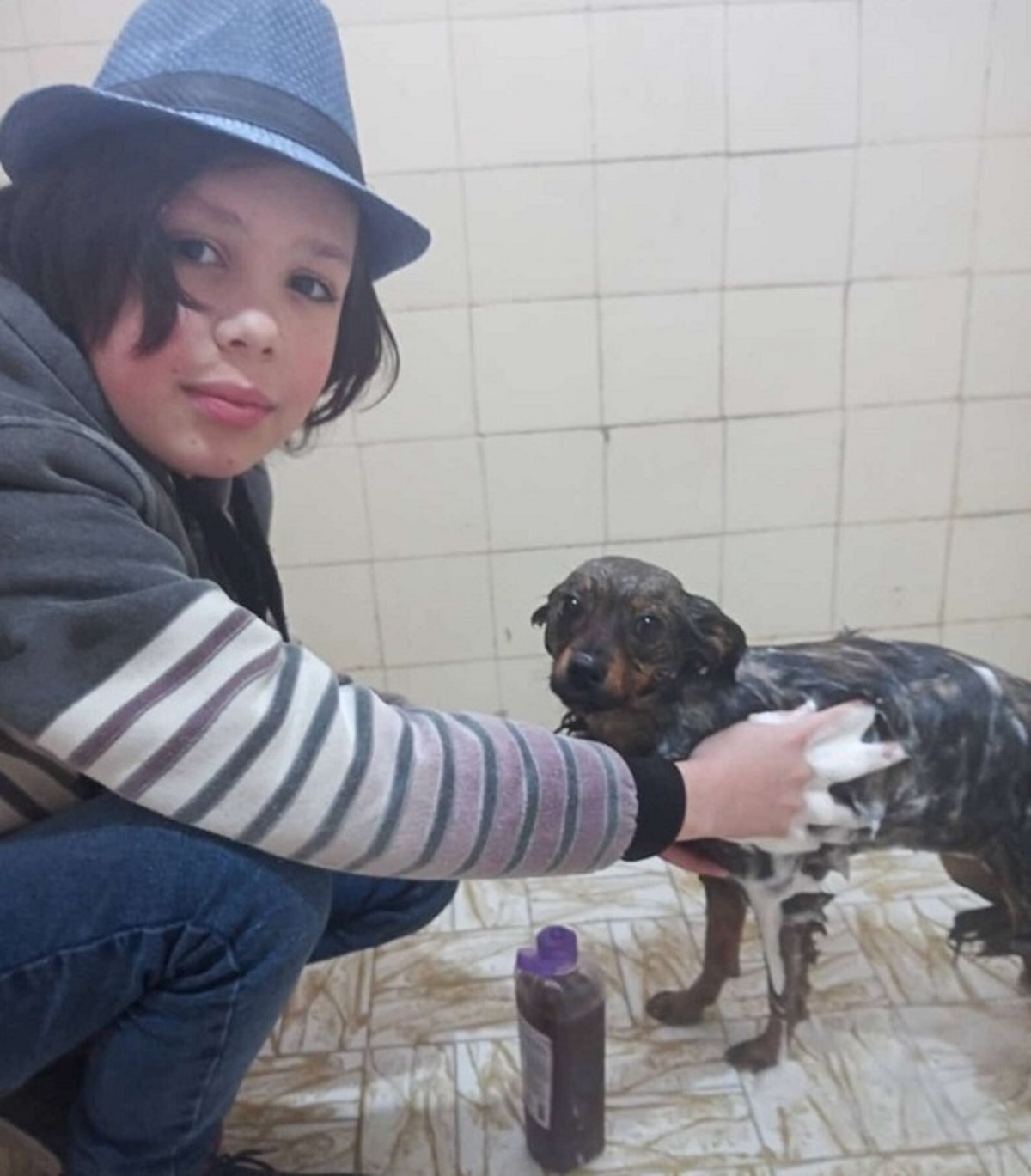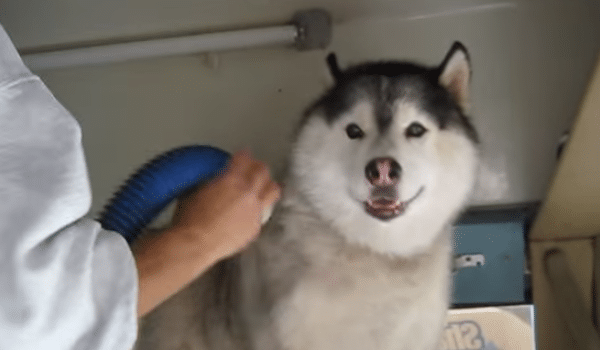If you’re looking for a smart and intelligent canine companion, look no further than the Papillon breed. Papillons are known for their friendly nature, but their intelligence sets them apart from other dog breeds. These small and elegant dogs have a unique bone structure, with butterfly-like ears that give them a distinctive appearance.
Papillons are not only visually appealing but also highly intelligent. They have an alert and happy temperament, making them an excellent choice for families. Their high energy levels and love for play make them natural athletes and perfect companions for an active lifestyle.
Are Papillons Smart?
- Papillons are known for their intelligence and adaptability.
- They have a toy breed appearance with butterfly-like ears.
- Papillons are happy, alert, and friendly.
- They are easy to train and eager to please.
- Regular mental and physical stimulation is essential for their well-being.
Papillon Breed Characteristics
The Papillon is a toy breed known for its elegant bone structure and dainty gait. With their distinctive butterfly-like ears that can be either erect or dropped, Papillons have a unique appearance that sets them apart from other breeds. Their coat is long, silky, and comes in a variety of colors, including parti-color or white with patches of any color. They have a fine-boned body that is slightly longer than it is tall, giving them a graceful and delicate appearance.
Papillons have small heads with dark, expressive eyes that exude alertness and intelligence. Their spirited expressions are a true reflection of their curious nature. Speaking of intelligence, Papillons are known for their quick wit and ability to learn and follow commands. Their intelligence, combined with their eager-to-please attitude, makes them highly trainable companions.
One of the remarkable qualities of the Papillon breed is their adaptability. Whether living in a bustling city or in wide-open spaces, Papillons have the adaptability to thrive in different environments. This makes them suitable for a variety of households and lifestyles.
In terms of temperament, Papillons are excellent family pets and can get along well with children. They are playful and affectionate, forming strong bonds with their human companions. However, they may be initially cautious and shy around strangers. Proper socialization from an early age is crucial to help them become more comfortable and confident in unfamiliar situations.
Now, let’s take a look at a brief overview of the Papillon breed characteristics:
| Breed | Papillon |
|---|---|
| Size | Toy |
| Coat | Long, silky |
| Colors | Parti-color or white with patches of any color |
| Body | Fine-boned, slightly longer than tall |
| Head | Small with dark eyes and alert expressions |
| Temperament | Affectionate, playful, friendly |
| Intelligence | Highly intelligent and trainable |
| Adaptability | Thrives in various environments |
Overall, Papillons possess a unique combination of elegance, intelligence, adaptability, and affection that makes them an exceptional breed for families and individuals alike.
Papillon Temperament and Behavior
Papillons are known for their happy, alert, and friendly temperament. Despite their delicate appearance, they are more robust than they appear and can easily adapt to different climates. Bred as companion dogs, Papillons thrive on spending time with their families. They crave human attention and form strong bonds with their owners.
However, it’s important to note that Papillons may develop undesirable behaviors if left alone for extended periods. They are social creatures and don’t do well with prolonged solitude. To mitigate this, having a second pet in the home can provide them with companionship when the family is away.
Papillons are generally great pets for families, including households with children. They are known to be affectionate and enjoy the company of people of all ages. However, they may be reserved and shy around strangers. Adequate socialization from an early age is recommended to help them feel more comfortable and reduce any defensive or aggressive tendencies.
Some Papillons can be prone to excessive barking, which is worth noting, especially in apartment living situations with shared walls. However, proper training and positive reinforcement techniques can help curb this behavior and promote a peaceful living environment.
Papillon Temperament Traits:
- Happy
- Alert
- Friendly
- Social
- Adaptable
- Affectionate
- Reserved with strangers
Papillon Behavior Characteristics:
- Craves attention
- Forms strong bonds with owners
- May develop separation anxiety if left alone for long periods
- Can be reserved and shy with unfamiliar people
- Potential for excessive barking

| Trait | Observation |
|---|---|
| Friendliness | Extremely social and friendly toward family members |
| Trainability | Quick learners and eager to please |
| Shyness | May be reserved around strangers; proper socialization is important |
| Barking | Some individuals may bark excessively; training can help control it |
| Independence | Prefer the company of their owners and may become anxious when left alone for extended periods |
| Adaptability | Easily adapts to various climates and living environments |
Papillon History and Popularity
The Papillon is a charming dog breed with a long and fascinating history. Dating back 700 years, it is one of the oldest toy breeds in existence today. These delightful dogs played an important role as “lap warmers” on trade routes between Asia and Europe, accompanying noblewomen in France and Spain.
The Papillon’s popularity is not limited to their role as companions. They have also been immortalized in historic portraits and paintings of esteemed queens and princesses. Renowned artists such as Rembrandt, Goya, and Rubens have captured the grace and elegance of Papillons in their masterpieces.
The name “Papillon” is derived from the French word for butterfly, which aptly describes their distinctive ears resembling the elegant wings of a butterfly. This unique feature adds to their charm and has contributed to their popularity over the centuries.
Today, the Papillon continues to win the hearts of dog lovers around the world. They are cherished companions, renowned for their intelligence, playful nature, and adaptability. Whether living in bustling cities or peaceful countryside, Papillons bring joy and companionship to countless households.
| Key Points | Papillon History and Popularity |
|---|---|
| Age | 700 years |
| Role | “Lap warmers” for noblewomen |
| Artistic Influence | Inclusion in historic paintings by renowned artists |
| Distinctive Feature | Butterfly-like ears |
| Popularity | Widely adored as companion dogs |
With their rich history and undeniable appeal, it’s no wonder that Papillons have captured the hearts of millions, solidifying their place in the world of dog lovers.
Papillon Care and Grooming
Taking care of your Papillon involves providing proper nutrition, regular grooming, and ensuring their overall well-being. Here are some essential care and grooming tips for your beloved Papillon:
Nutrition
Feeding your Papillon a high-quality dog food that is appropriate for their life stage and small size is crucial. This will provide them with the necessary nutrients to support their overall health and energy levels. Monitoring their food intake is important to prevent them from becoming overweight. Consult with your veterinarian to determine the right portion sizes and feeding schedule for your Papillon.
Grooming
Papillons have long, silky coats that require regular grooming to keep them looking their best and prevent matting. Weekly brushing is recommended to remove loose hair and prevent tangles. Pay special attention to areas with longer hair, such as the hind legs, ears, thighs, and buttocks. Regular dental care is also essential for your Papillon’s oral hygiene. Brush their teeth regularly with a dog-specific toothbrush and toothpaste to prevent dental issues.
Papillons have fast-growing nails that need to be regularly trimmed to prevent discomfort or injury. If you are unsure how to trim their nails safely, consult a professional groomer or your veterinarian for assistance. Additionally, check and clean your Papillon’s ears regularly to prevent ear infections. Use a dog-specific ear cleaning solution and gently wipe the outer ear with a cotton ball or pad.
Exercise and Mental Stimulation
Exercise is important for Papillons to burn off excess energy and stay physically fit. Daily walks, trips to the dog park, and structured play sessions in a fenced yard can provide them with the exercise they need. Papillons are intelligent dogs that also require mental stimulation. Engage them in interactive games, puzzle toys, and brain-training activities to keep their minds sharp and prevent boredom.

Papillons require a balanced diet, regular grooming, and both physical and mental exercise to thrive. Providing them with proper care and attention will ensure that they remain healthy, happy, and energetic companions for many years to come.
Papillon Training and Intelligence
Papillons are highly intelligent and trainable dogs. Their natural curiosity and eagerness to please make them quick learners, making Papillon training a rewarding experience for both the dog and the owner.
When it comes to training Papillons, positive reinforcement methods work best. This means rewarding good behavior with treats, praise, and affection. Using punishment or harsh training methods can be detrimental to their sensitive nature and may hinder their progress.
Papillons have a keen instinct for understanding and following human instructions. They excel in obedience training and are often ranked among the top breeds in competitive obedience and agility sports. Their high intelligence and problem-solving abilities enable them to learn new commands and tricks with relative ease.
House training a Papillon may require a bit more patience and consistency due to their small size. Establishing a regular routine and using positive reinforcement techniques can help speed up the process. Crate training can also be effective in teaching them where to eliminate and prevent accidents indoors.
Regular socialization is crucial for Papillons to become comfortable and well-behaved around unfamiliar people, pets, and places. Exposing them to a variety of environments, sounds, and experiences from an early age will help them develop into confident and well-adjusted dogs.
Papillon Intelligence Ranking
Due to their high intelligence, Papillons are considered one of the smartest dog breeds. While there is no definitive ranking, they consistently demonstrate their problem-solving abilities and adaptability in various training and competition settings.
A table showing the Papillon’s intelligence ranking compared to other popular dog breeds:
| Breed | Intelligence Ranking |
|---|---|
| Papillon | Highly intelligent |
| Border Collie | Very intelligent |
| Poodle | Very intelligent |
| German Shepherd | Very intelligent |
| Golden Retriever | Intelligent |
It’s important to note that intelligence rankings may vary depending on different studies and assessments. However, Papillons consistently exhibit their intelligence and problem-solving skills in various activities and training scenarios.
Papillon Genetic Health Conditions
Papillons, like any other breed, may be prone to certain genetic health conditions. It is important for potential owners to be aware of these conditions, understand their implications, and take appropriate measures for preventive care and early detection. Below are some of the common genetic health conditions that can affect Papillons:
1. Chondrodystrophy (CDDY) and Intervertebral Disc Disease (IVDD)
Chondrodystrophy is a condition that affects the skeletal structure, particularly the development of cartilage. In Papillons, it can lead to a higher risk of Intervertebral Disc Disease (IVDD), which affects the spinal discs. IVDD can cause pain, mobility issues, and even paralysis. Regular exercise, maintaining a healthy weight, and avoiding activities that put excessive strain on the spine can help minimize the risk of IVDD.
2. Neuroaxonal Dystrophy (NAD)
Neuroaxonal Dystrophy (NAD) is a rare neurodegenerative disorder that affects the central nervous system. It is characterized by symptoms such as an abnormal gait, blindness, tremors, and collapse. While there is no cure for NAD, supportive care and medication can help manage the symptoms and improve the quality of life for affected Papillons.
3. Progressive Retinal Atrophy (PRA)
Progressive Retinal Atrophy (PRA) is a degenerative eye disorder that causes progressive vision loss. It starts with diminished night vision and eventually leads to complete blindness. Regular eye examinations and genetic testing can help identify if Papillons are carriers or at risk for PRA, allowing for appropriate care and management.
4. von Willebrand’s Disease, Type 1
von Willebrand’s Disease is a blood clotting disorder that can cause mild bleeding tendencies. In Papillons, Type 1 is the most common form. While the symptoms can vary, it is important to be cautious and take necessary precautions to prevent excessive bleeding during surgeries or injuries. Genetic testing can help determine if a Papillon is at risk of von Willebrand’s Disease.
Genetic health testing is a valuable tool in identifying any potential health conditions that your Papillon may be predisposed to. Tests such as Wisdom Panel’s DNA tests can provide important insights into your dog’s genetic makeup and help guide preventive care and treatment options in collaboration with your veterinarian. By being proactive in managing your Papillon’s health, you can ensure a long, happy, and healthy life for your beloved companion.
Conclusion
Papillons are undoubtedly a smart breed. Their intelligence, combined with their friendly temperament and agility, makes them excellent companions and family pets.
One of the defining characteristics of Papillons is their unique butterfly-like ears and elegant bone structure. Their long, silky coats come in various colors, adding to their charm.
Papillons thrive on mental and physical stimulation, enjoying activities like competitive obedience and agility. They are quick learners and easy to train, making them a popular choice for families and individuals looking for a smart and adaptable canine companion.
While caring for Papillons, it is important to pay attention to their nutrition, grooming, and regular veterinary check-ups. Proper care ensures their overall health and well-being, allowing them to live a happy and fulfilling life.






